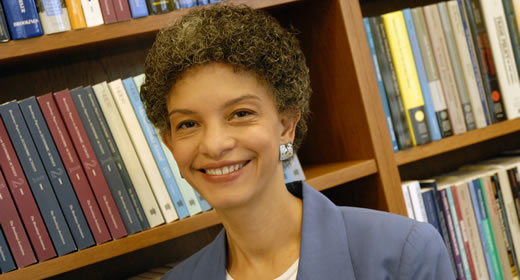
Susan M. Collins will serve as an evaluating judge for a new competition that will award a $100 million grant to a single proposal designed to help solve a critical problem affecting people, places, or the planet. The John D. and Catherine T. MacArthur Foundation’s competition, called 100&Change, is open to organizations working in any field of endeavor anywhere. Applicants must identify both the problem they are trying to solve, as well as their proposed solution. Competitive proposals will be meaningful, verifiable, durable, and feasible.
As a judge for 100&Change, Collins will evaluate valid proposals randomly assigned to her according to a strict set of criteria designed to favor proposals that maximize measurable impact in their chosen areas. More information about the judges and their evaluation methodology will be shared publicly via the competition website, www.100andchange.org. Participants submitting valid proposals will receive feedback from the judges.
“Solving society’s most pressing problems isn’t easy, but we believe it can be done,” said MacArthur President Julia Stasch. “Potential solutions may go unnoticed or under-resourced and are waiting to be brought to scale. Every three years, we plan to award $100 million to help make one of these solutions a reality. Through 100&Change, we want to inspire, encourage, and support other people’s ideas, here in our hometown Chicago, across the nation and around the world, about how to address major challenges and enable real progress toward a solution.”
100&Change will consider applications from across the United States and around the world. Nonprofit and for-profit organizations can apply, subject to eligibility rules. The competition will not accept applications from individuals or government agencies.
“We believe that 100&Change can have a ripple effect beyond what a single $100 million grant enables,” said Cecilia Conrad, MacArthur’s Managing Director leading the competition. “Setting audacious goals is inspiring. Clear evidence of impact can encourage other funders to invest in solvable problems more broadly, and applicants who do not receive the $100 million grant will still receive valuable feedback on and attention to their ideas.”
To participate, applicants must first register on the website by September 2, 2016. Then they must complete a substantive online application, detailing the problem, solution, and budget, along with posting a video pitch. Proposals will be accepted through October 3, 2016. Semi-finalists will be announced in December. Each semi-finalist will receive assistance from an expert team to identify and address questions about technical and organizational capacity required to implement each proposed solution, including specific plans to monitor, evaluate, and learn during implementation. Each semi-finalist will also be asked to show significant, authentic engagement with affected communities. MacArthur’s Board of Directors will select finalists in the summer of 2017. Finalists will present their solutions during a live event in the fall of 2017, after which the Board will make the final decision about the $100 million grant recipient.
The MacArthur Foundation supports creative people, effective institutions, and influential networks building a more just, verdant, and peaceful world. MacArthur is placing a few big bets that truly significant progress is possible on some of the world’s most pressing social challenges, including over-incarceration, global climate change, nuclear risk, and significantly increasing financial capital for the social sector. In addition to the MacArthur Fellows Program, the Foundation continues its historic commitments to the role of journalism in a responsible and responsive democracy; the strength and vitality of our headquarters city, Chicago; and generating new knowledge about critical issues. More information is at www.macfound.org.
Susan M. Collins is the Joan and Sanford Weill Dean of Public Policy at the Gerald R. Ford School of Public Policy and a professor of public policy and economics. She is an international economist whose research interests focus on the implications of increasing international economic integration and the determinants of economic growth in industrial, emerging market, and developing countries. She currently serves as a member of the Board of Directors of the Federal Reserve Bank of Chicago, a member of the Council on Foreign Relations, a research associate at the National Bureau of Economic Research, and a nonresident senior fellow at the Brookings Institution. She served a term as president of the Association for Professional Schools of International Affairs (APSIA) from 2013-2015 and, earlier in her career, as a senior staff economist on the President’s Council of Economic Advisers. Collins received her BA summa cum laude in economics from Harvard University and her PhD from the Massachusetts Institute of Technology.